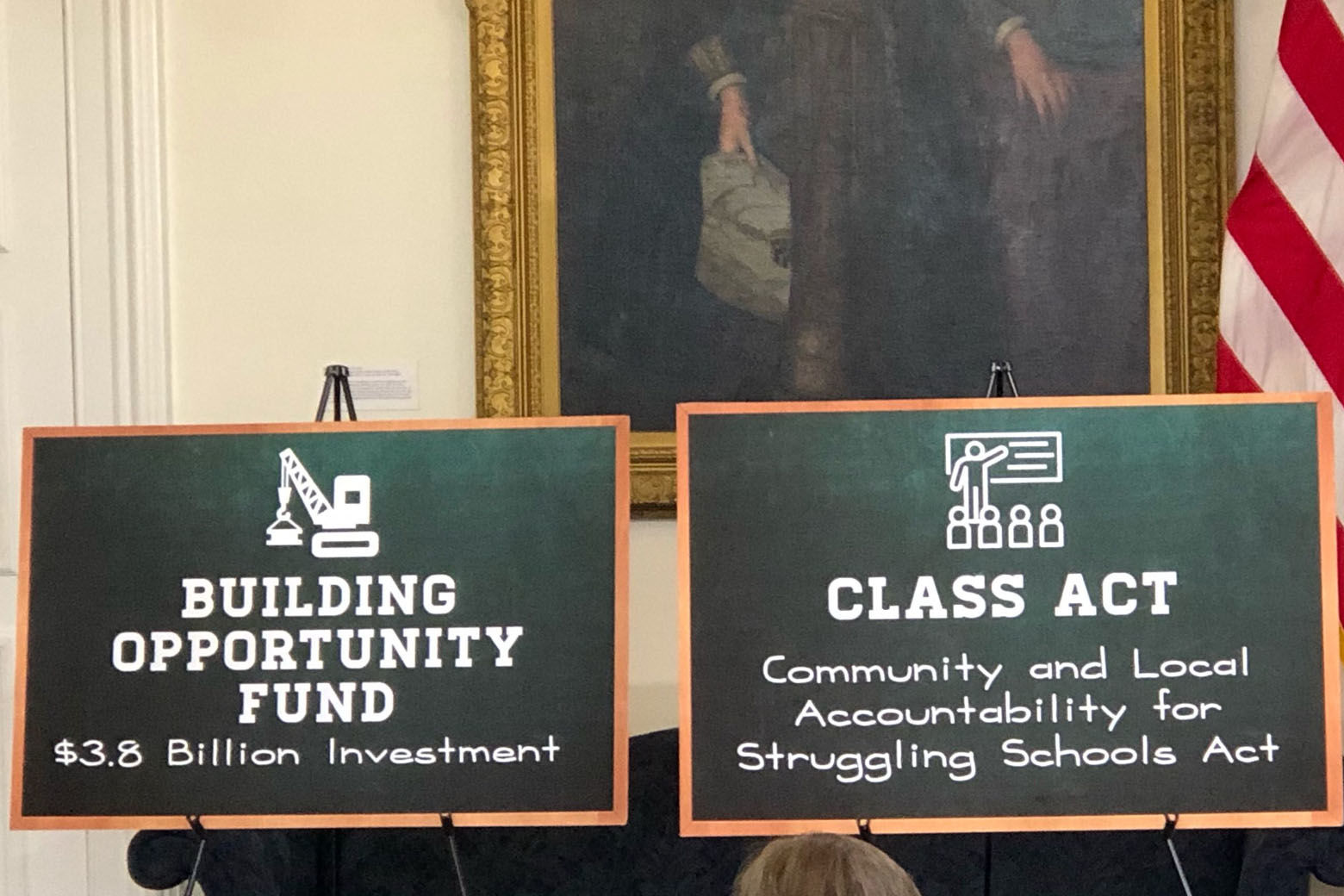
Declaring that education has been and will continue to be a top priority of his administration, Maryland Gov. Larry Hogan announced his education proposals for 2020.
Hogan called his education reform proposal the “CLASS Act of 2020.” The acronym stands for the Community and Local Accountability for Struggling Schools Act.
Under the proposal, any school with the state’s lowest rating of “1 star” for two years in a row would “automatically” be designated as an “innovation school.”
Hogan said in those cases, “Local communities will be able to take charge of that failing school and be empowered to enact critical changes in leadership, curriculum, policies, schedules and budgets,” and develop a turnaround plan.
Hogan offered few details in his news conference Thursday. For example, he didn’t specify who in the community would be given that authority to make changes and how they would be held accountable.
Later, his communications director, Michael Ricci, emailed reporters with some details on how the changes would be implemented.
Under the governor’s plan, members of the community could petition the local superintendent and school board to designate a school an “innovation school.”
The school board and the superintendent would then establish a committee, which would develop a five-year plan.
Ricci stated an innovation school would not be the same as a charter school, and that the legislation would include wording to prohibit that.
Cheryl Bost, president of the Maryland State Education Association, said Maryland already has a mechanism to turn around struggling schools. “That’s already embedded in the Protect Our Schools Act that was passed two years ago,” Bost said.
Bost said that act requires community members and educators to be part of turnaround plans for the lowest-rated schools.
“So, we’ve been doing this for two years,” she said. “It’s a process — it takes time. You’re not going to turn around a school overnight.”
Hogan also announced a school-construction funding plan he called the “Building Opportunity Fund.” That fund would provide $3.8 billion in school construction money over a five-year period, he said.
The plan “will enable us to bring local schools all across our state into the 21st century,” Hogan said.
Though the largely Democratic legislature and the Republican governor have strong disagreements over the funding of the education plan devised by the Kirwan Commission, Hogan’s school construction funding plan was greeted warmly by state Sen. Bill Ferguson, D-Baltimore.
Ferguson, nominated to serve as Senate president, issued a statement, saying he “was pleased to see the governor introduce proposals to move our education system forward.”
“We clearly have common ground on the issue of school construction and believe we can find a united path forward on this critical infrastructure need,” Ferguson said in the statement.
Maryland lawmakers will be back in session Jan. 8, and the debate over implementing proposals from the Kirwan Commission are expected to dominate the session.








